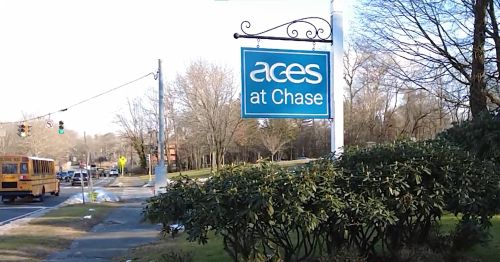-
Our Agency
- About Us
- Calendars
- Contact Us
-
Directions
- ACCESS
- ACES Chase Academy
- ACES International Preschool and Childcare Center
- ACES Transportation Services
- Center for Autism Spectrum and Developmental Disorders
- Central Office
- Educational Center for the Arts
- Educational Technology
- Little Theatre on Lincoln Street
- Mill Road School
- Network Services
- Staff Development / Administration
- Village School
- Whitney High School North
- Wintergreen Interdistrict Magnet School
- Human Capital Development
- Education Foundation
- News / Press
- Publications
- Request for Proposals
- Employment
- Events & Workshops
- Referrals
-
Schools & Programs
-
Special Education Schools
- Center for Autism Spectrum and Developmental Disorders
- Mead Elementary School
- Mill Road School
- Village School
- Whitney Academy EXPLORE & CREATE
- Whitney High School North
- Perry Hill Nest
- Brightwell Academy
-
Magnet Schools
-
ACES Chase Academy
- About Us
- ACES Chase Academy: History & Origins
- Admissions
-
Student and Family Portal
- Breakfast and Lunch Menus
- Cancellations, Delays, and Early Dismissal
- Community Health Center
- Dress Guidelines
- Family Teacher Organization (FTO)
- Principal's Corner
- Monitoring Grades: PowerSchool Parent Portal
- Quick Links
- Student Handbook
- Athletics Handbook
- Summer Reading and Math
- Technology & Digital Citizenship
- Virtual Suggestion Box
- Document Library
- Contact Us
- Back to ACES
- Educational Center for the Arts
- Wintergreen Interdistrict Magnet School
-
ACES Chase Academy
- Alternative Education
- ACES Early Head Start
- ACES International
- ACES International Preschool and Childcare Center
- ACES Open Choice
- Family and Community Engagement
- Magnet Choice
- School-Based Services
-
Special Education Schools
-
Services
- ACCESS Adult Vocational Services
- ACES Insurance Collaborative
- ACES UP Renewable Energy Solutions
- Alternate Routes to Certification
- Business Partnership Opportunities
- Center for School Safety & Wellness
- Clinical Services
- Educational Technology
- Facility Rental
- Fingerprinting
- International Programming
- Marketing and Communications Services
- Network Services
- Professional Learning
- Regional Education Councils
- Regional Special Education Transportation
- Speech and Language Services
- Transportation
- World Language Translation Services
- Find
Functional Behavior Assessment (FBA)
A systematic method of acquiring information about the function a problem behavior serves for a person and the conditions in which the behaviors are most likely to occur. The results of the assessment are used to guide the design of an intervention for decreasing the problem behavior and increasing appropriate behavior.
Functional Analysis (FA)
An analysis of the function of problem behavior (i.e., the purpose it serves for the individual), wherein antecedents and consequences representing those in a person’s natural routine are arranged within an experimental design so that their separate effects on problem behavior can be observed and measured. A Functional Analysis is typically completed in conjunction with an FBA, or after an FBA has not yielded conclusive results.
Component Analysis
An analysis designed to identify the effective elements of an existing treatment package and the relative contributions of different variables in a treatment package. A component analysis will guide decisions regarding modifications to behavior support plans.
Ecological Assessment
An assessment that evaluates the complex interrelationships between environment and behavior. This assessment includes but is not limited to; an evaluation of the physical aspects of the environment, social dynamics (peer and adult), rules and expectations, scope and sequence of skills to be mastered, and peer performance. This type of assessment can help to guide decisions regarding student placement, program planning, and environmental modification.
Skill-Based Assessments
A district may contract with ACES to help guide their team in the implementation of the VB-MAPP, ABLLS-R, the AFLS, and other skill-based assessments. These assessment tools function as a curriculum guide and tracking system that become part of a student's programming. If a district contracts with ACES to conduct one of these assessments, the BCBA will not only guide the team in the initial assessment; they will also provide the training necessary to utilize them as a curriculum guide and tracking system.
Gerneralization Assessment
This type of assessment is designed to analyze behavior which may or may not be occurring in the home and community environment after initial training. They are designed to answer questions such as; “Why is this behavior happening at home but not at school?”, “Why is this behavior happening at school and not at home?” Answering such questions is critical in insuring that instructional programming has broad and meaningful impact on student’s lives.









